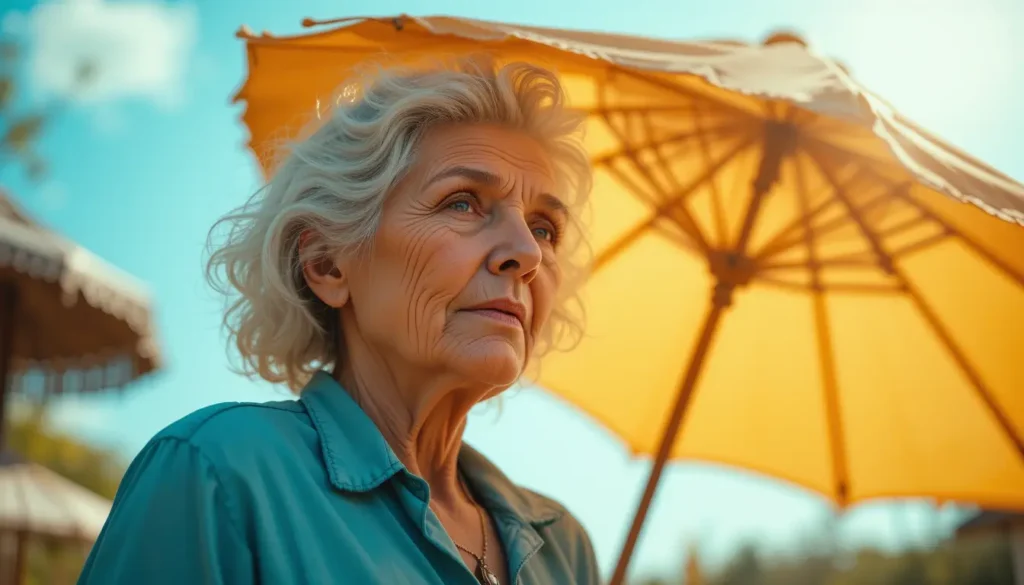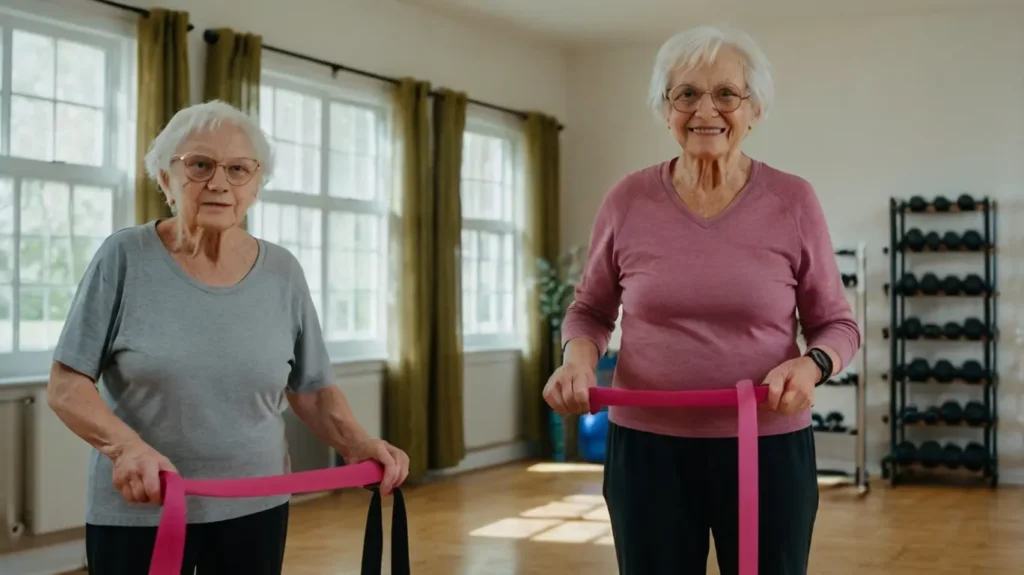Dry skin is a common problem for many seniors. It feels tight, rough, and can sometimes crack. This is more than an annoyance. Dry skin can cause discomfort and lead to infections. Seniors must care for their skin carefully.
The right moisturizer can make a big difference. But not all moisturizers work the same. Choosing a gentle moisturizer is key. Why is that important? Because elderly skin is thinner and more fragile. Harsh products can cause irritation.
This article will guide you through why gentle moisturizers matter and how to pick the best ones. You will learn easy tips to protect and soothe your skin every day.
What Causes Dry Skin in Older Adults
Dry skin is very common among older adults. This happens because the skin goes through many changes as people age. One major change is that the skin makes less oil. This oil, called sebum, is important because it keeps the skin soft and moist.
When the skin produces less oil, it loses its natural ability to stay hydrated. Without enough oil, the skin becomes dry, rough, and sometimes itchy.
Another change in aging skin is the loss of the fat layer under the skin. This fat layer helps keep the skin thick and healthy. When this layer thins out, the skin becomes fragile and loses its ability to hold water. Thin skin is less flexible and more likely to crack. This makes it harder for the skin to stay moist.
The skin also sheds old cells slower as we age. Normally, the body replaces skin cells regularly to keep the surface fresh and smooth. When this process slows down, dead skin cells build up. This buildup makes the skin feel rough and dry. It can also block moisturizers from absorbing well.
There are also other factors that make dry skin worse for seniors. Cold weather is one of the biggest causes. Cold air has less moisture, so it dries out the skin quickly.
Low humidity inside homes, especially in winter when heaters run, removes moisture from the skin. Hot showers or baths can strip away the skin’s natural oils too. While warm water feels good, it can harm dry skin by washing away the protective oils.
Medical problems also play a role in dry skin. Conditions such as diabetes, kidney disease, and thyroid problems affect skin health. They can reduce the skin’s ability to stay hydrated or heal itself. Some medications taken by older adults cause dryness as a side effect. These include drugs for high blood pressure, cholesterol, or acne.
How Gentle Moisturizers Help
Moisturizers are essential for keeping dry skin healthy. They work by locking water inside the skin. When the skin holds moisture, it feels soft and smooth instead of tight and rough.
This is especially important for older adults because their skin dries out faster. Gentle moisturizers do this job carefully. They avoid harsh chemicals that can harm fragile, aging skin. Instead, they use ingredients that help calm and repair skin.
Many gentle moisturizers contain natural oils. Oils such as jojoba oil or sunflower seed oil replace the oils the skin loses as it ages. These oils help restore the skin’s protective layer. This layer keeps moisture in and harmful things out.
Natural oils also provide nutrients that support skin health. They add a protective barrier without clogging pores or causing irritation.
Another key group of ingredients in gentle moisturizers is humectants. Humectants attract water from the air and bring it into the skin. Glycerin is a common humectant used in many skincare products. It pulls moisture in and holds it inside the skin.
This makes the skin feel more hydrated throughout the day. Humectants improve skin’s ability to stay moist, especially in dry environments.
Ceramides are also very important in gentle moisturizers. Ceramides are fats naturally found in the skin. They help form the skin’s barrier. This barrier locks in moisture and protects against irritants. As people age, ceramide levels drop.
Moisturizers with ceramides help rebuild this barrier. They make skin stronger and less prone to dryness and damage.
Choosing the Right Gentle Moisturizer
Not all moisturizers are suitable for elderly skin. Aging skin is more delicate and sensitive. Some products that work well for younger people may cause irritation or dryness in seniors. That is why choosing the right gentle moisturizer is important.
Seniors should take time to read product labels carefully. Knowing what to avoid and what to look for can protect the skin and improve comfort.
Many moisturizers contain alcohol, fragrances, or dyes. These ingredients can irritate sensitive, aging skin. Alcohol dries skin by removing natural oils. Fragrances and dyes can cause allergic reactions or redness. For this reason, seniors should avoid these ingredients. Instead, look for moisturizers labeled “fragrance-free” and “hypoallergenic.”
These terms mean the product contains fewer irritants and is safer for sensitive skin. However, some products may still cause irritation. It is important to test a new moisturizer before using it all over.
Creams and ointments are generally better than lotions for dry, elderly skin. Creams contain more oil than lotions. They stay on the skin longer and provide better hydration. Ointments are thicker than creams.
They form a strong protective layer on the skin. This layer helps trap moisture and guards against dryness. While ointments may feel greasy, they are very effective for very dry or cracked skin. Lotions are lighter and contain more water. They may not offer enough moisture for elderly skin that is very dry.
When choosing a moisturizer, check the ingredients list. Certain ingredients help repair and protect dry skin. Ceramides are one of the best. Ceramides are fats that rebuild the skin’s barrier. This barrier holds moisture in and protects skin from irritants.
Glycerin is another helpful ingredient. It is a humectant, meaning it draws moisture from the air into the skin. Hyaluronic acid works similarly by holding water inside the skin for long-lasting hydration. Shea butter is a natural ingredient that nourishes and softens skin. Natural oils, such as jojoba, sunflower, or almond oil, help restore lipids that the skin loses with age.
Before using a new moisturizer fully, test it on a small skin area, such as the forearm. Watch for any redness, itching, or burning. If irritation appears, stop using the product. Using a moisturizer daily is most effective when applied right after bathing. This helps lock in the moisture before it evaporates from the skin.
Tips for Better Skin Care
Moisturizer is important, but it works best when combined with good skin habits. Seniors should pay attention to daily routines that protect and support skin health. One key tip is to avoid hot showers and baths.
Hot water feels relaxing but it strips away natural oils that keep skin soft. Using warm water instead helps preserve these oils. Bathing or showering should be kept short, under 10 minutes, to prevent drying out the skin.
Choosing the right cleanser is also important. Many soaps contain harsh chemicals that can irritate and dry skin. Gentle, soap-free cleansers are best for elderly skin. These cleansers clean without removing essential oils.
While washing, avoid scrubbing the skin hard. Rough scrubbing can damage fragile skin and cause redness or irritation.
After washing, it is best to pat the skin dry with a soft towel. Rubbing the skin can cause micro-tears, leading to more dryness or sensitivity.
Once the skin is dry, apply moisturizer within three minutes. Applying moisturizer quickly helps trap water in the skin before it evaporates. This locks in hydration and keeps the skin softer longer.
Hydration is not only about what you put on your skin but also about drinking enough water. Seniors should drink water throughout the day. Proper hydration from the inside helps keep skin plump and less dry. Foods rich in water, such as fruits and vegetables, also support skin health.
Wearing soft, breathable clothing helps prevent irritation. Rough fabrics can rub the skin and cause redness or itchiness. Natural fibers like cotton are better choices than synthetic materials for sensitive skin.
Protection from the environment is also crucial. Cold weather and wind dry out skin quickly. Wearing gloves and scarves in cold weather helps shield skin. Sunscreen should be used outdoors to protect skin from harmful UV rays, which can cause damage and dryness. Even on cloudy days, UV rays affect the skin.
Dry skin can sometimes lead to more serious problems. If cracks, redness, or pain appear, see a healthcare provider. Signs of infection include swelling, warmth, or pus. A doctor can prescribe special creams or treatments.
Some skin conditions need medical care beyond moisturizers. Regular skin checks help catch issues early. Seniors with diabetes or circulation problems must be extra careful. Healthy skin helps prevent hospital visits and improves quality of life.
Dry skin is a challenge many seniors face. It can cause discomfort and health risks. But using gentle moisturizers daily can protect and heal skin. Understanding what causes dryness and picking the right products makes a big difference.
Pair moisturizer with simple habits like warm baths and hydration. Watch for warning signs that need medical help. Taking care of your skin improves comfort and confidence. It supports healthy aging. Start today by choosing a gentle moisturizer and making it part of your daily routine. Your skin will thank you.




